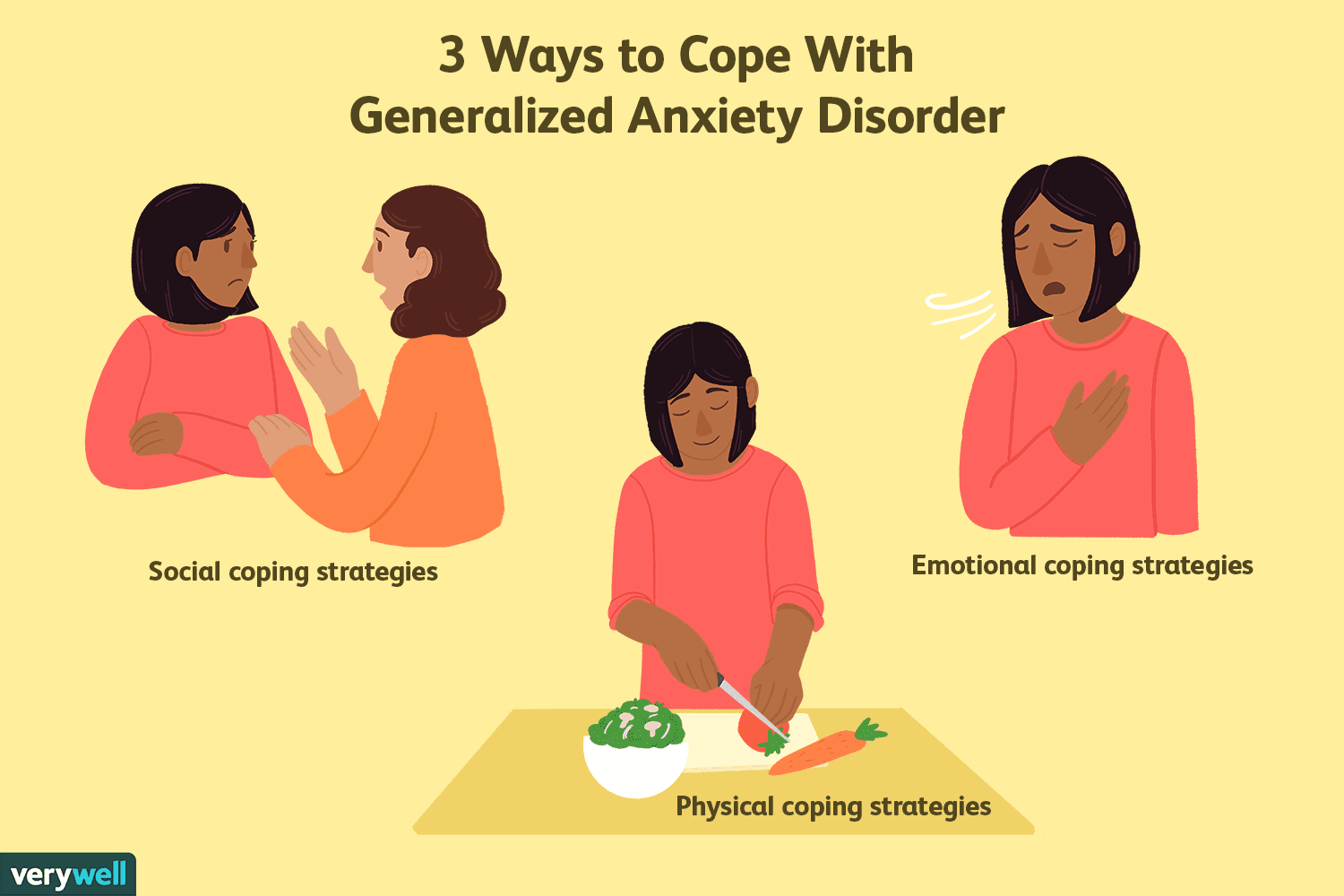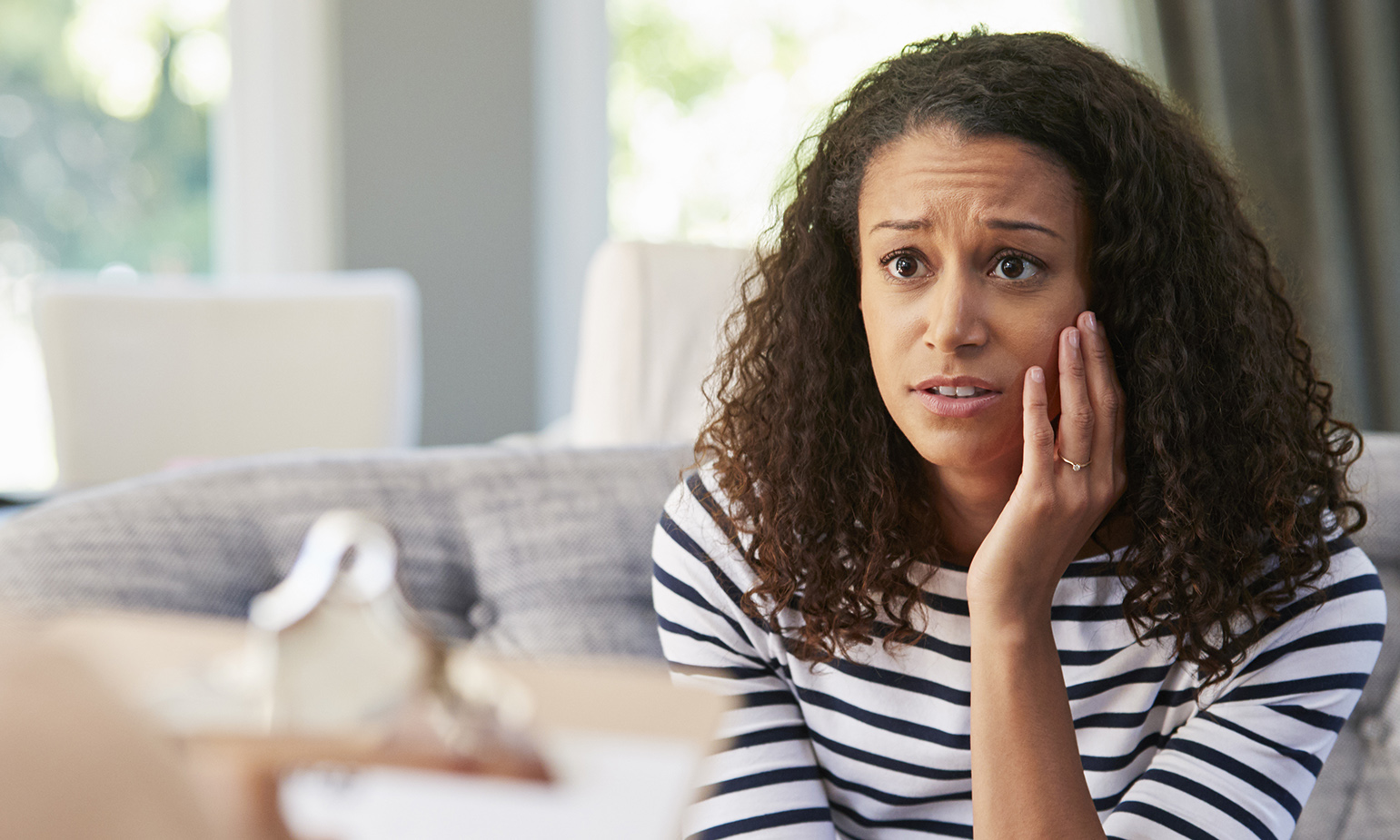Where To Go For Anxiety Treatment

Another form of psychotherapy, called cognitive-behavioral therapy, involves learning behavioral relaxation techniques as well as restructuring patterns of thinking that foster anxiety. Biofeedback is another helpful tool. In a series of sessions with a therapist, you watch your own brain-wave patterns on an electroencephalograph and gradually learns to control the waves. This teaches you to achieve a more relaxed state at will. Practitioners estimate that after about a dozen sessions, you will be able to exert control over mental activity without the help of the therapist or monitoring instrument. Daily exercise can be another helpful treatment for anxiety symptoms. If you find that exercise works for you, push yourself to go for brisk walks or undertake an active sport that you enjoy.
Since anxiety is often accompanied by shallow breathing, deep breathing exercises can also be helpful. Try the following form of yoga breathing:Lie on your back in a comfortable place. Breathe in slowly through your nose, using your diaphragm to suck air into your lungs while allowing your abdomen to expand. anxiety treatment without medication. (Put your hand on your abdomen just below the navel to make sure the abdomen is being pushed up and out by the diaphragm.) After the abdomen is expanded, continue to inhale as deeply as possible. When you breathe out, reverse the process: Contract the abdomen while exhaling slowly and completely.
Progressive relaxation is another helpful technique. It begins by tensing and then relaxing one part of the body, usually beginning with the toes. When this part of the body is relaxed, another part of the body is tensed and relaxed until the entire body is free of tension. Relaxing visualization can also help. A therapist or meditation trainer suggests relaxing images for a person to hold in mind. Once the image is in place, the person imagines soothing sensations such as pleasant scents and sounds. Eventually people can learn to do this themselves when they anticipate -- or find themselves in -- stressful situations..
You may start by seeing your primary care provider to find out if your anxiety could be related to your physical health. He or she can check for signs of an underlying medical condition that may need treatment. However, you may need to see a mental health specialist if you have severe anxiety. A psychiatrist is a medical doctor who specializes in diagnosing and treating mental health conditions. A psychologist and certain other mental health professionals can diagnose anxiety and provide counseling (psychotherapy). To help diagnose an anxiety disorder, your mental health provider may: This involves discussing your thoughts, feelings and behavior to help pinpoint a diagnosis and check for related complications.
Many doctors use the criteria in the Diagnostic and Statistical Manual of Mental Disorders (DSM-5), published by the American Psychiatric Association, to diagnose an anxiety disorder. The two main treatments for anxiety disorders are psychotherapy and medications. You may benefit most from a combination of the two. It may take some trial and error to discover which treatments work best for you. Also known as talk therapy or psychological counseling, psychotherapy involves working with a therapist to reduce your anxiety symptoms. It can be an effective treatment for anxiety. Cognitive behavioral therapy (CBT) is the most effective form of psychotherapy for anxiety disorders.
Treatment Options For Anxiety When Psychodynamic Therapy Fails
CBT includes exposure therapy, in which you gradually encounter the object or situation that triggers your anxiety so you build confidence that you can manage the situation and anxiety symptoms. Several types of medications are used to help relieve symptoms, depending on the type of anxiety disorder you have and whether you also have other mental or physical health issues. For example: Certain antidepressants are also used to treat anxiety disorders - what is the treatment for anxiety disorder. An anti-anxiety medication called buspirone may be prescribed. In limited circumstances, your doctor may prescribe other types of medications, such as sedatives, also called benzodiazepines, or beta blockers. These medications are for short-term relief of anxiety symptoms and are not intended to be used long term.
https://freedom-now-clinic.business.site/
https://batchgeo.com/map/5b6b374a0283bf9eeb7bc1ff75569553
https://batchgeo.com/map/f0730236435ca108599d6a8f7f270f19
https://goo.gl/maps/H2G2VYmFKNnxDkUv5
https://goo.gl/maps/XmXBv6xjjLn11yE77
https://goo.gl/maps/fPFejaCLXSZCcthy8
https://twitter.com/i/moments/1382750203736915971
https://earth.google.com/web/data=Mj8KPQo7CiExdXlBUTE2c2Myc1BwajNDQU4yb1JBWHFDRk9sRzMtWW8SFgoUMEM2QjIxNjFFNDFBMEMzMDFBRDQ
While most people with anxiety disorders need psychotherapy or medications to get anxiety under control, lifestyle changes also can make a difference. Here's what you can do: Develop a routine so that you're physically active most days of the week. Exercise is a powerful stress reducer. It may improve your mood and help you stay healthy. Start out slowly and gradually increase the amount and intensity of your activities. These substances can cause or worsen anxiety. If you can't quit on your own, see your doctor or find a support group to help you.

Visualization techniques, meditation and yoga are examples of relaxation techniques that can ease anxiety. Do what you can to make sure you're getting enough sleep to feel rested. If you aren't sleeping well, see your doctor. Healthy eating — such as focusing on vegetables, fruits, whole grains and fish — may be linked to reduced anxiety, but more research is needed. Several herbal remedies have been studied as a treatment for anxiety, but more research is needed to understand the risks and benefits. Herbal and dietary supplements aren't monitored by the Food and Drug Administration (FDA) the same way medications are.
Some of these supplements can interfere with prescription medications or cause dangerous interactions. Before taking herbal remedies or dietary supplements, talk to your doctor to make sure they're safe for you and won't interact with any medications you take. To cope with an anxiety disorder, here's what you can do: Talk to your doctor or mental health provider. Find out what might be causing your specific condition and what treatments might be best for you. Involve your family and friends and ask for their support. Take medications as directed. Keep therapy appointments and complete any assignments your therapist may give you.
Learn what triggers your anxiety or causes you stress - what is the best treatment for anxiety. Practice the strategies you developed with your mental health provider so you're ready to deal with anxious feelings in these situations. Keeping track of your personal life can help you and your mental health provider identify what's causing you stress and what seems to help you feel better. Remember that you aren't alone. Support groups offer compassion, understanding and shared experiences. The National Alliance on Mental Illness and the Anxiety and Depression Association of America provide information on finding support. anxiety treatment centers. You can reduce anxiety by learning how to carefully manage your time and energy.
Which Is Considered The Most Effective Treatment For Anxiety Disorders
When you feel anxious, take a brisk walk or delve into a hobby to refocus your mind away from your worries. You may start by seeing your primary care provider. He or she may refer you to a mental health professional. Before your appointment, make a list of: Note when they occur, whether anything seems to make them better or worse, and how much they affect your day-to-day activities and interactions. Include any major life changes or stressful events you've dealt with recently. Also note any traumatic experiences you've had in the past or as a child. Note if your parents, grandparents, siblings or children have struggled with any mental health problems.
Include any medications, vitamins, herbs or other supplements, and the doses. to make the most of your appointment. Some basic questions to ask your doctor include: What's the most likely cause of my anxiety? Are there other possible situations, psychological issues or physical health problems that could be causing or worsening my anxiety? Do I need any tests? Should I see a psychiatrist, psychologist or other mental health provider? What type of therapy might help me? Would medication help? If so, is there a generic alternative to the medicine you're prescribing? In addition to treatment, are there any steps I can take at home that might help? Do you have any educational materials that I can have? What websites do you recommend? Don't hesitate to ask other questions during your appointment.
Freedom Now Clinic
236 SE 23rd Ave, Boynton Beach, FL 33435
GW4P+R9 Boynton Beach, Florida
https://myfreedomnow.com/
Find Anxiety Treatment in Delray Beach
Find Freedom Now on Google Maps!
Videos:
https://youtu.be/LPkeiPmCQ5g
https://vimeo.com/537398684
More Information:
https://freedomnowclinic.blogspot.com/2021/04/anxiety-treatment-in-delray-beach-fl.html
https://www.buzzsprout.com/952096/8342271-anxiety-treatment-delray-mental-health-treatment-in-south-florida-freedom-now-clinic
Dr. Yashwin Kang is an experienced anxiety doctor in Chandigarh with years of clinical experience and a non-judgmental and friendly approach to the patients. He has generalized anxiety disorder, social anxiety, panic attacks, and stress-related disorders. Being one of the most prominent psychiatrists in Chandigarh, he aims at assisting the patients to overcome the symptoms and have a stress-free and healthy life.
ReplyDelete